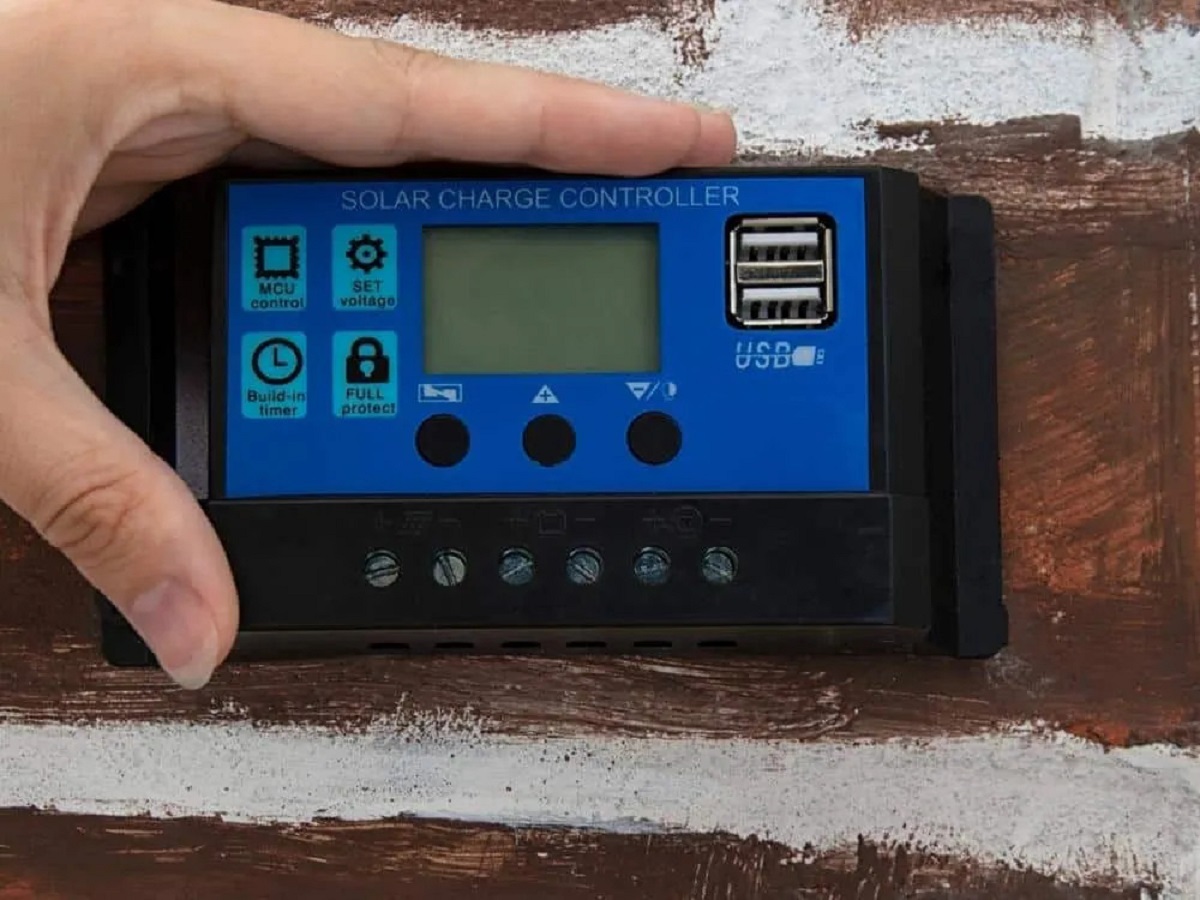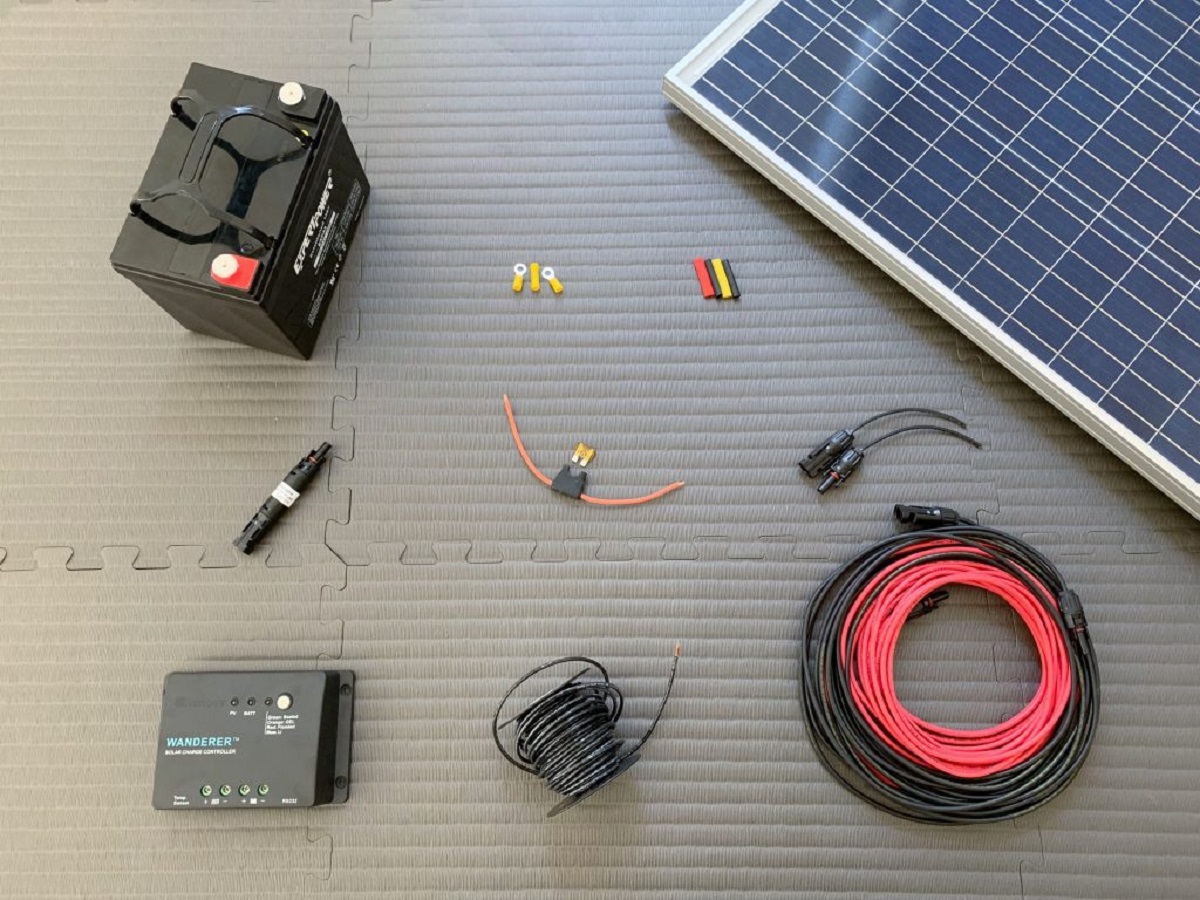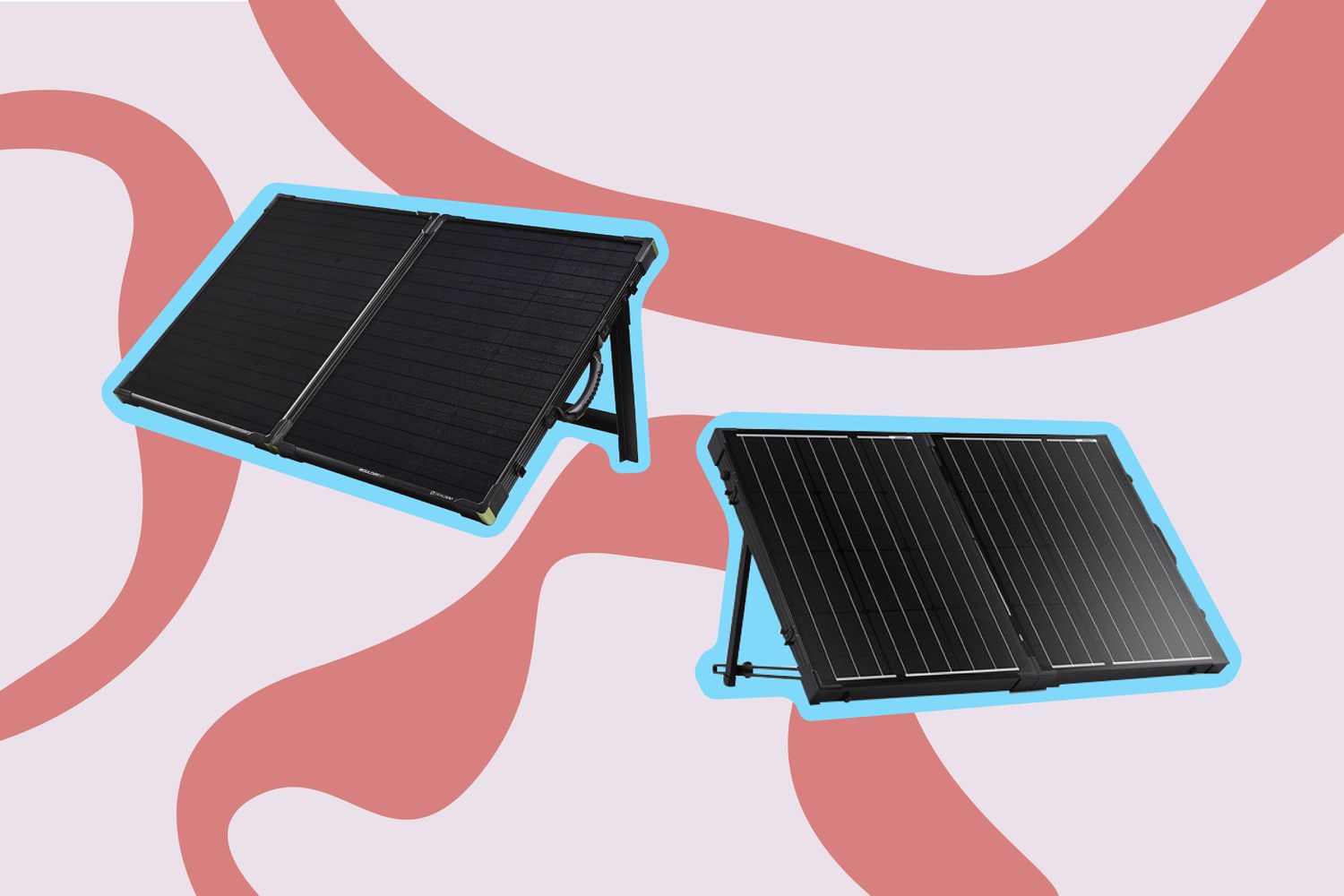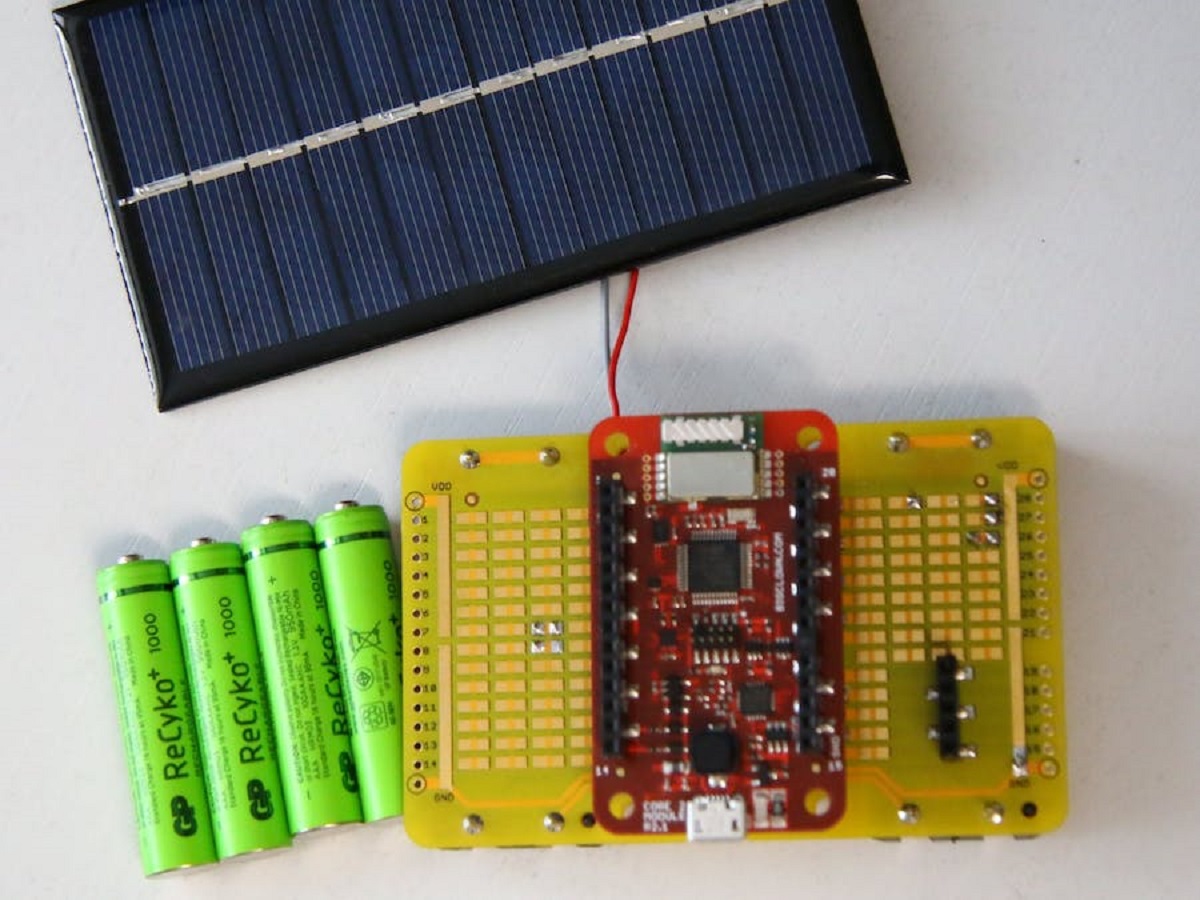Benefits of Using a Solar Panel Charger Controller
A solar panel charger controller is an essential component of any solar power system. It plays a crucial role in optimizing the energy output and prolonging the lifespan of your solar panel and battery. Here are some of the key benefits of using a solar panel charger controller:
- Overcharge protection: One of the major advantages of a solar panel charger controller is that it prevents overcharging of the battery. When the battery is fully charged, the controller automatically cuts off the power supply, preventing damage to the battery caused by excessive charging. This helps to extend the overall lifespan of the battery.
- Efficient energy conversion: A solar panel charger controller is designed to maximize the efficiency of energy conversion from the solar panel to the battery. It ensures that the optimal amount of power is transferred from the panel to the battery, minimizing energy loss and maximizing power output. This translates into greater energy savings in the long run.
- Battery protection: The controller also provides protection for the battery by preventing over-discharging. It monitors the battery voltage and automatically disconnects the load when the battery reaches a certain low voltage threshold. This prevents damage to the battery and improves its lifespan.
- Load control: A solar panel charger controller allows you to have better control over the load connected to the battery. It regulates the flow of power to the load, preventing any power surges or fluctuations that could damage the connected devices. This ensures a stable and reliable power supply for your appliances.
- Temperature compensation: Some advanced solar panel charger controllers come with temperature compensation features. They adjust the charging parameters based on the temperature conditions, ensuring optimal charging performance in any climate. This helps to maximize the charging efficiency, especially in extreme temperatures.
Overall, using a solar panel charger controller brings numerous benefits, including extended battery life, efficient energy conversion, and enhanced power management. It protects both your battery and connected devices, ensuring a reliable and sustainable power supply. Investing in a high-quality solar panel charger controller is a wise decision that will not only save you money in the long run but also contribute to a greener and more sustainable environment.
How a Solar Panel Charger Controller Works
A solar panel charger controller is a crucial component in a solar power system that regulates the flow of electricity between the solar panel and the battery. Its primary function is to ensure optimal charging and protection of the battery. Here’s a breakdown of how a solar panel charger controller works:
1. Solar Panel Connection:
The solar panel charger controller is connected to the solar panel, which generates electricity from the sun’s rays. The controller acts as an intermediary between the panel and the battery, managing the flow of power from the panel to the battery.
2. Power Regulation:
Once the solar panel starts generating electricity, the controller monitors the voltage and current produced by the panel. It regulates the power output to ensure that the voltage matches the requirements of the battery. This prevents overcharging or undercharging of the battery, optimizing its performance and longevity.
3. Charge Controller Algorithm:
The solar panel charger controller utilizes a charge controller algorithm to determine the appropriate charging mode for the battery. It calculates the battery’s state of charge and adjusts the charging parameters accordingly. The algorithm takes into account factors such as battery type, voltage levels, and temperature conditions to ensure efficient charging.
4. Overcharge Protection:
The controller prevents overcharging of the battery by continuously monitoring its voltage level. When the battery reaches its optimal charge, the controller automatically cuts off the power supply from the solar panel. This protects the battery from damage caused by excessive charging and improves its overall lifespan.
5. Load Control:
In addition to managing the charging process, the solar panel charger controller also regulates the power supply to connected devices or loads. It ensures that the power transmitted from the battery to the load remains stable, preventing any power surges or fluctuations that could potentially damage the devices.
6. Battery Protection:
The controller safeguards the battery against over-discharging by monitoring its voltage level. If the battery voltage drops below a certain threshold, the controller disconnects the load from the battery, preventing further discharge. This protects the battery from deep discharge, which can be detrimental to its lifespan.
Overall, a solar panel charger controller acts as a crucial control center in a solar power system. It ensures efficient and optimal charging of the battery, protects it from overcharging and over-discharging, and regulates the power supply to connected loads. By using a solar panel charger controller, you can maximize the performance of your solar power system and extend the lifespan of your battery.
Factors to Consider When Deciding If You Need a Solar Panel Charger Controller
When contemplating the use of a solar panel charger controller in your solar power system, several factors should be considered before making a decision. These factors will help determine if a solar panel charger controller is necessary for your specific setup. Here are the key considerations:
- Battery Capacity: The capacity of your battery is a crucial factor in determining if you need a solar panel charger controller. If you have a small battery capacity and a low power demand, you may be able to manage the charging process manually. However, if you have a larger battery capacity and higher power requirements, a solar panel charger controller becomes essential to optimize charging and protect the battery.
- Solar Panel Size: The size of your solar panel array is another important consideration. If you have a small solar panel system with a low wattage output, you may not require a controller. However, larger systems with higher wattage outputs will benefit significantly from a solar panel charger controller, as it ensures efficient energy conversion and prevents overcharging.
- Battery Type: Different battery chemistries have varying charging requirements. Some batteries, such as lead-acid batteries, require specific charging parameters to maximize their lifespan and performance. In such cases, a solar panel charger controller is essential to regulate the charging process accurately. Lithium-ion batteries, on the other hand, may have built-in charging management systems, which might eliminate the need for a controller.
- Charging Conditions: Consider the environmental conditions under which your solar power system operates. If you experience extreme temperature variations or fluctuating sunlight levels, a solar panel charger controller can help optimize charging by adjusting parameters based on environmental factors.
- Power Load: Evaluate the power load connected to your solar power system. If you have sensitive electronic devices or appliances that require a stable power supply, a solar panel charger controller can ensure a consistent flow of power, protecting your equipment from power surges or fluctuations.
Ultimately, the decision to use a solar panel charger controller boils down to the specific requirements of your solar power system. If you have a small system with low power demand and a basic battery setup, you may be able to manage the charging manually. However, for larger systems, higher power loads, diverse battery chemistries, and variable charging conditions, a solar panel charger controller is highly recommended to optimize performance, protect the battery, and ensure a stable and efficient power supply.
When is a Solar Panel Charger Controller Necessary?
A solar panel charger controller is necessary in various scenarios to ensure the efficient operation and longevity of your solar power system. Here are some situations where a solar panel charger controller is essential:
- Larger Solar Power Systems: If you have a larger solar power system with multiple solar panels and a higher power output, a solar panel charger controller is necessary. These systems generate more electricity, and without a controller, you risk overcharging the battery, leading to potential damage.
- Higher Battery Capacities: Solar power systems with larger battery capacities require a solar panel charger controller to optimize charging. A controller ensures that the battery is not overcharged or undercharged, maximizing its performance and extending its lifespan.
- Varying Environmental Conditions: If your solar power system operates in an environment with fluctuating sunlight levels or extreme temperature conditions, a solar panel charger controller is necessary. The controller adjusts the charging parameters based on environmental factors, ensuring that the battery is charged optimally under changing conditions.
- Multiple Battery Types: If your solar power system incorporates different battery chemistries, such as lead-acid and lithium-ion batteries, a solar panel charger controller becomes necessary. It enables you to set specific charging profiles for each battery type, preventing overcharging or undercharging of individual batteries.
- Sensitive Electronic Devices: If you have sensitive electronic devices or appliances connected to your solar power system, a solar panel charger controller is necessary to provide a stable power supply. The controller regulates the flow of power, protecting your devices from potential damage caused by power surges or fluctuations.
It’s important to assess the specific requirements and components of your solar power system to determine if a solar panel charger controller is necessary. While smaller systems with lower power outputs and basic battery setups may not require a controller, larger systems, higher power loads, diverse battery types, and varying environmental conditions demand the use of a solar panel charger controller. Additionally, investing in a controller can provide peace of mind and ensure the long-term performance and efficiency of your solar power system.
Signs that You Might Need a Solar Panel Charger Controller
While the use of a solar panel charger controller is not always necessary for every solar power system, there are several signs that indicate you might benefit from incorporating a controller into your setup. Here are some signs to look out for:
- Frequent Battery Issues: If you frequently experience issues with your battery, such as reduced capacity, shorter lifespan, or inconsistent performance, it may be a sign that you need a solar panel charger controller. A controller can regulate the charging process, preventing overcharging, undercharging, or excessive discharging, which can adversely affect the battery’s health.
- Fluctuating Power Output: If you notice significant fluctuations in the power output of your solar panels, especially during varying weather conditions, it could indicate the need for a solar panel charger controller. The controller ensures steady power output by adjusting the charging parameters based on environmental factors, optimizing energy conversion and stabilizing the power supply.
- Complex Battery Setup: If your solar power system involves multiple batteries or different battery chemistries, it can be challenging to manage the charging process manually. A solar panel charger controller simplifies the process by allowing you to set specific charging profiles for each battery type, ensuring optimal charging and preventing imbalances among the batteries.
- Sensitive Electronic Devices: If you have sensitive electronic devices or appliances connected to your solar power system, such as computers, medical equipment, or communication devices, it is recommended to use a solar panel charger controller. The controller provides a stable and regulated power supply, protecting your devices from potential damage due to power fluctuations or surges.
- Longer Battery Lifespan: If you aim to maximize the lifespan of your batteries, investing in a solar panel charger controller is a wise decision. The controller ensures that the battery is charged optimally without undercharging or overcharging, which can significantly extend the lifespan of the battery, reducing the need for frequent replacements.
While these signs indicate a potential need for a solar panel charger controller, it’s essential to assess your specific solar power system and its components. Factors such as system size, battery capacity, environmental conditions, and power load should be taken into consideration. If you identify any of these signs or have concerns about your system’s charging process, consulting with a solar professional can help determine if a solar panel charger controller is necessary for your specific needs.
Types of Solar Panel Charger Controllers
There are several types of solar panel charger controllers available in the market, each designed to suit different solar power system setups and requirements. Here are the main types of solar panel charger controllers:
- PWM (Pulse Width Modulation) Controllers: PWM controllers are the most common and widely used type of solar panel charger controllers. They regulate the charging process by rapidly pulsing the power from the solar panel to the battery, maintaining a constant voltage level. PWM controllers are generally more affordable and suitable for smaller solar power systems.
- MPPT (Maximum Power Point Tracking) Controllers: MPPT controllers are more advanced and efficient compared to PWM controllers. They use sophisticated algorithms to track the maximum power point, extracting the maximum energy from the solar panel. MPPT controllers are highly efficient, especially in situations where there may be fluctuations in sunlight levels or temperature. They are recommended for larger solar power systems and can provide a higher level of energy conversion.
- Temperature Compensating Controllers: These controllers come with a temperature sensor that adjusts the charging voltage based on temperature conditions. They compensate for the variations in battery charging efficiency caused by temperature fluctuations. Temperature compensating controllers are ideal for environments with extreme or fluctuating temperatures, ensuring optimal charging performance at all times.
- Integrated Controllers: Integrated controllers combine the functionalities of a solar panel charger controller and an inverter into a single device. These controllers are designed for grid-tied solar power systems where the excess power generated from the solar panels is fed back into the electric grid. Integrated controllers simplify the system setup and can provide additional features such as grid monitoring and data logging.
- Smart Controllers: Smart controllers are the latest innovation in solar panel charger controllers. They utilize advanced microprocessors and software algorithms to monitor and manage the charging process more effectively. Smart controllers often have built-in features such as wireless connectivity, remote monitoring, and automatic load control. They offer enhanced flexibility and control over the charging process, optimizing the performance and efficiency of the solar power system.
When selecting a solar panel charger controller, consider factors such as system size, battery capacity, environmental conditions, and budget. PWM controllers are suitable for smaller systems with a limited budget, while MPPT controllers offer higher efficiency and are recommended for larger systems or areas with variable sunlight conditions. Temperature compensating controllers are beneficial in extreme temperature environments, integrated controllers are suitable for grid-tied systems, and smart controllers offer advanced features and functionality for more sophisticated setups.
Tips for Choosing the Right Solar Panel Charger Controller for Your Needs
Choosing the right solar panel charger controller is essential to ensure optimal performance and protection for your solar power system. Here are some tips to help you make an informed decision:
- System Size and Power Output: Consider the size of your solar power system and the power output of your solar panels. For smaller systems, a PWM controller may be sufficient, while larger systems with higher power outputs may benefit from an MPPT controller for better energy conversion.
- Battery Capacity: Evaluate the capacity of your battery and select a solar panel charger controller that can handle the charging requirements. Ensure that the controller is compatible with the battery chemistry and supports the proper charging voltage and current.
- Environmental Conditions: Take into account the environmental conditions in which your solar power system operates. If you experience extreme temperature variations, consider a temperature compensating controller that can adjust the charging parameters accordingly.
- Efficiency and Performance: Look for a controller with high efficiency ratings to maximize the energy conversion from the solar panels to the battery. Consider the controller’s ability to track the maximum power point (MPPT controllers) or regulate the power output (PWM controllers) for optimal performance.
- Additional Features: Determine if you require any additional features such as load control, wireless connectivity, remote monitoring, or data logging. Smart controllers offer advanced features and flexibility, while integrated controllers combine charging and inverter functionalities.
- Quality and Reliability: Ensure that the solar panel charger controller is of a high-quality build and comes from a reputable manufacturer. Check for certifications and customer reviews to gauge the reliability and durability of the controller.
- Budget: Set a budget for the solar panel charger controller and compare the options available within that range. Keep in mind that the quality and features of the controller should take priority over the price, as it is a crucial component of your solar power system.
By considering these tips and assessing your specific solar power system requirements, you can choose the right solar panel charger controller that will optimize the performance, efficiency, and lifespan of your solar power system. Consulting with a solar professional can also provide valuable guidance and recommendations to ensure you select the most suitable controller for your needs.
Installation and Maintenance of a Solar Panel Charger Controller
Proper installation and regular maintenance are crucial for the optimal performance and longevity of your solar panel charger controller. Here are some guidelines to follow:
Installation:
- Read the Manual: Before starting the installation, thoroughly read the instruction manual provided by the manufacturer. Ensure you understand the wiring diagrams, connections, and any specific installation requirements.
- Location: Choose a suitable location for the controller that is away from direct sunlight, excessive heat, moisture, and other environmental factors that may negatively impact its performance.
- Wiring: Follow the wiring diagram provided by the manufacturer to connect the solar panels, battery, and load to the controller. Ensure proper wiring connections using appropriate wire sizes and connectors to prevent any electrical issues.
- Protective Measures: Install appropriate fuses, circuit breakers, or surge protectors to safeguard the controller and other components from electrical faults and power surges.
- Grounding: Properly ground the solar panel charger controller according to the manufacturer’s guidelines to ensure safety and protect against electrical faults.
Maintenance:
- Regular Inspections: Periodically inspect the controller for any signs of damage, loose connections, or corrosion. Also, check the battery terminals and wiring for any issues.
- Cleanliness: Keep the controller and its surroundings clean and free from dust, debris, and insects. Regularly wipe the surface of the controller with a clean, dry cloth.
- Battery Maintenance: Follow the recommended maintenance practices for your battery, such as checking fluid levels (if applicable) and maintaining proper ventilation. Ensure the battery is securely connected to the controller.
- Temperature Control: If you have a temperature compensating controller, periodically check and calibrate the temperature sensor according to the manufacturer’s instructions.
- Software Updates: If your controller has software or firmware, check for any available updates from the manufacturer and install them as recommended.
Professional Assistance: If you are unsure about any aspect of the installation or maintenance process, consult a professional or qualified technician with experience in solar power systems. They can provide proper guidance and ensure the correct setup and maintenance of your solar panel charger controller.
By following these installation and maintenance guidelines, you can ensure the proper functioning and longevity of your solar panel charger controller. Regular inspections and maintenance help to identify and address any issues promptly, ensuring the smooth operation of your solar power system and maximizing its efficiency.
Conclusion
A solar panel charger controller is a crucial component of any solar power system, providing numerous benefits and ensuring the efficient operation of the system. From protecting the battery and optimizing charging to regulating the power supply and maximizing energy conversion, a solar panel charger controller plays a vital role in the overall performance and longevity of the system.
When considering whether to use a solar panel charger controller, several factors should be taken into account, including system size, battery capacity, environmental conditions, and power load. These factors help determine if a controller is necessary for your specific setup.
There are various types of solar panel charger controllers available, including PWM controllers, MPPT controllers, temperature compensating controllers, integrated controllers, and smart controllers. Each type offers different features and functionalities to cater to the specific needs and requirements of your solar power system.
When choosing a solar panel charger controller, it is important to consider factors such as system size and power output, battery capacity, environmental conditions, efficiency and performance, additional features, quality and reliability, and budget. Taking these factors into account will help you make an informed decision and select the right controller for your needs.
Proper installation and maintenance of the solar panel charger controller are essential to ensure its optimal performance. Following the manufacturer’s guidelines, proper wiring, grounding, regular inspections, cleanliness, and battery maintenance are important aspects to consider for the successful installation and maintenance of the controller.
In conclusion, a solar panel charger controller is a critical component that enhances the efficiency, reliability, and lifespan of your solar power system. By choosing the right controller, you can maximize the performance and benefits of your solar power system while protecting your battery and connected devices. Regular maintenance and proper care ensure the continued optimal functioning of the controller and the overall success of your solar power system.

























